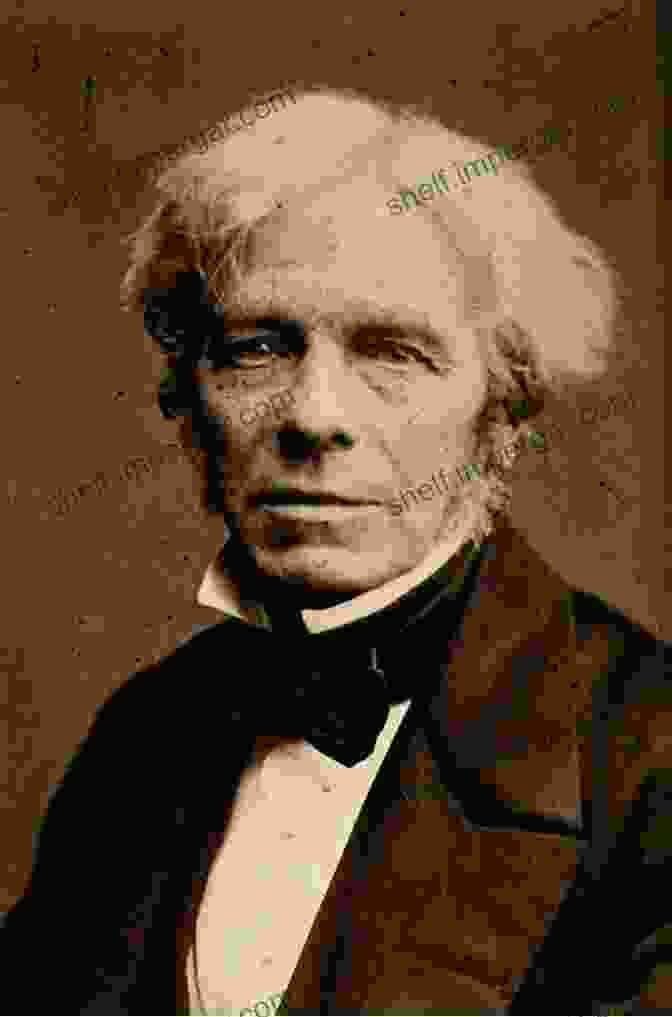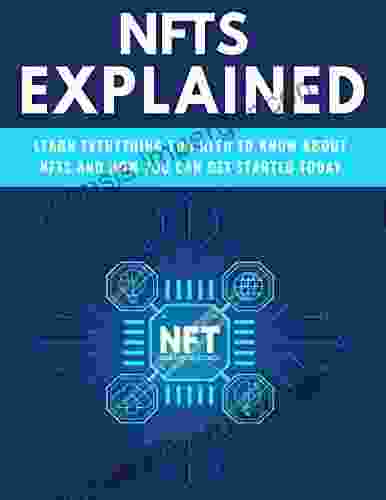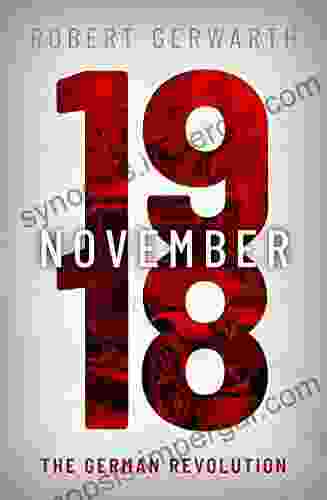The German Revolution: A Pivotal Event Shaping the Modern World

The German Revolution, a tumultuous period of upheaval and transformation in the early 20th century, played a pivotal role in shaping the course of human history. This article delves into the intricate events, key figures, and profound consequences of this pivotal revolution, offering a comprehensive exploration of its impact on the political, social, and economic landscape of not only Germany, but the entire world.
Prelude to the Revolution
The seeds of the German Revolution were sown in the deep-seated dissatisfaction with the authoritarian rule of the German Empire under Kaiser Wilhelm II. The empire was characterized by a rigid class system, suppression of political dissent, and a growing sense of economic inequality. These grievances fueled widespread resentment, particularly among the working class and the burgeoning middle class.
4.5 out of 5
| Language | : | English |
| File size | : | 4900 KB |
| Text-to-Speech | : | Enabled |
| Screen Reader | : | Supported |
| Enhanced typesetting | : | Enabled |
| Word Wise | : | Enabled |
| Print length | : | 355 pages |
| Lending | : | Enabled |
The outbreak of World War I in 1914 exacerbated these tensions. The horrors of trench warfare and the mounting casualties left many Germans disillusioned with the war effort and the imperial government. The war also placed immense strain on the economy, leading to shortages of food and other essential supplies.
Outbreak of the Revolution
In November 1918, the German Revolution erupted in earnest. Sailors of the Imperial Navy mutinied in Kiel, sparking a wave of unrest that quickly spread throughout the country. Workers and soldiers formed councils, known as "Räte," which challenged the authority of the government. Faced with the collapse of its military and dwindling popular support, Kaiser Wilhelm II abdicated on November 9, 1918.
The Weimar Republic
In the aftermath of the revolution, Germany transitioned to a democratic republic, the Weimar Republic. The Weimar Constitution, adopted in 1919, established a parliamentary system and enshrined fundamental rights and freedoms for all citizens. However, the young republic faced numerous challenges, including hyperinflation, political instability, and the rise of extremist groups.
Key Figures of the Revolution
The German Revolution featured a cast of complex and influential figures who played pivotal roles in its unfolding. These included:
* Friedrich Ebert: The leader of the Social Democratic Party (SPD) and the first President of the Weimar Republic. Ebert played a key role in negotiating the end of the war and stabilizing the country during the early days of the revolution. * Kurt Eisner: A leading figure in the Bavarian Revolution, Eisner established a short-lived socialist republic in Munich. His assassination in February 1919 plunged Germany into further chaos. * Rosa Luxemburg: A prominent socialist and revolutionary, Luxemburg was a vocal critic of the SPD's collaboration with the government. She was assassinated alongside Karl Liebknecht during the January Uprising of 1919. * Karl Liebknecht: Co-founder of the German Communist Party, Liebknecht fought alongside Luxemburg in the January Uprising. He was a staunch advocate for workers' rights and a vocal opponent of the war.
Socioeconomic Impacts of the Revolution
The German Revolution had a profound impact on German society. It led to the abolition of the monarchy, the establishment of universal suffrage, and the rise of labor unions. The revolution also brought about significant social reforms, including the of an eight-hour workday and the expansion of educational opportunities.
Economic Impact
In the aftermath of the war and revolution, Germany's economy was in a state of turmoil. The country experienced massive hyperinflation, which eroded the value of currency and devastated savings. The Weimar Republic struggled to stabilize the economy and address the widespread unemployment and poverty that plagued the country.
Political Instability and the Rise of Extremism
The Weimar Republic faced chronic political instability. The government was plagued by coalition governments and the rise of extremist groups on both the left and right. The German Communist Party (KPD) sought to overthrow the republic through revolution, while the Nazi Party (NSDAP) exploited widespread discontent and nationalism to gain political power.
Aftermath and Legacy
The German Revolution had a lasting impact on Germany and the world. It marked the end of the imperial era and laid the foundation for a democratic republic. However, the Weimar Republic faced insurmountable challenges and ultimately succumbed to the rise of Nazism.
The rise of the Nazi Party and its subsequent pursuit of aggressive policies led to World War II, one of the most catastrophic conflicts in human history. The German Revolution, therefore, serves as a cautionary tale about the fragility of democracy and the dangers of extremist ideologies.
The German Revolution was a transformative event that left an enduring mark on the course of human history. It represented a period of great upheaval, social change, and political experimentation. The revolution laid the foundation for a democratic republic in Germany, but its legacy was ultimately marred by the rise of extremism and the outbreak of World War II.
Understanding the German Revolution is essential for comprehending the complexities of modern European history and the challenges faced by societies in times of great change. It is a reminder of the importance of democracy, social justice, and vigilance against the forces that undermine these fundamental principles.
Further Reading
* Evans, Richard J. The Coming of the Third Reich. Penguin Books, 2004. * Kershaw, Ian. The Weimar Republic: The Crisis of German Democracy. Penguin Books, 2008. * Mommsen, Hans. The German Revolution. Princeton University Press, 2014.
4.5 out of 5
| Language | : | English |
| File size | : | 4900 KB |
| Text-to-Speech | : | Enabled |
| Screen Reader | : | Supported |
| Enhanced typesetting | : | Enabled |
| Word Wise | : | Enabled |
| Print length | : | 355 pages |
| Lending | : | Enabled |
Do you want to contribute by writing guest posts on this blog?
Please contact us and send us a resume of previous articles that you have written.
 Book
Book Novel
Novel Page
Page Chapter
Chapter Text
Text Story
Story Genre
Genre Reader
Reader Library
Library Paperback
Paperback E-book
E-book Magazine
Magazine Newspaper
Newspaper Paragraph
Paragraph Sentence
Sentence Bookmark
Bookmark Shelf
Shelf Glossary
Glossary Bibliography
Bibliography Foreword
Foreword Preface
Preface Synopsis
Synopsis Annotation
Annotation Footnote
Footnote Manuscript
Manuscript Scroll
Scroll Codex
Codex Tome
Tome Bestseller
Bestseller Classics
Classics Library card
Library card Narrative
Narrative Biography
Biography Autobiography
Autobiography Memoir
Memoir Reference
Reference Encyclopedia
Encyclopedia Dina Behrman
Dina Behrman Denise Grover Swank
Denise Grover Swank Pam Louwagie
Pam Louwagie Derek Pua
Derek Pua Pablo Mitchell
Pablo Mitchell David Samadi
David Samadi Ivy Caldwell
Ivy Caldwell Diane Decillis
Diane Decillis Deborah A Miranda
Deborah A Miranda Dennis Swanson
Dennis Swanson Deryle Lonsdale
Deryle Lonsdale Roberto Fasciani
Roberto Fasciani David West
David West Haydn Shaw
Haydn Shaw Debra Ginsberg
Debra Ginsberg Katharine Forrest
Katharine Forrest Delroi Whitaker Sr
Delroi Whitaker Sr Oliver Laine
Oliver Laine Graham Vickers
Graham Vickers Michael Faraday
Michael Faraday
Light bulbAdvertise smarter! Our strategic ad space ensures maximum exposure. Reserve your spot today!

 Allen GinsbergUnveiling the Masterpieces of Swindon's Designed Locomotive Portfolios: A...
Allen GinsbergUnveiling the Masterpieces of Swindon's Designed Locomotive Portfolios: A...
 Nathaniel HawthorneReal Life Psychic Detectives: Unlocking the Mysteries of the Supernatural
Nathaniel HawthorneReal Life Psychic Detectives: Unlocking the Mysteries of the Supernatural Guy PowellFollow ·10k
Guy PowellFollow ·10k Emanuel BellFollow ·5.7k
Emanuel BellFollow ·5.7k Nick TurnerFollow ·10.3k
Nick TurnerFollow ·10.3k Eric HayesFollow ·6.1k
Eric HayesFollow ·6.1k Jamie BellFollow ·13k
Jamie BellFollow ·13k Warren BellFollow ·4.5k
Warren BellFollow ·4.5k Joshua ReedFollow ·19.9k
Joshua ReedFollow ·19.9k George HayesFollow ·13.5k
George HayesFollow ·13.5k

 Ivan Turgenev
Ivan Turgenev38 Art Made During The Pandemic Digitally Enhanced Art...
By [Author's Name] The year 2024 was a time...

 F. Scott Fitzgerald
F. Scott FitzgeraldAmazing Cooking Guide To South Beach Diet: Your Culinary...
Embark on a...

 Zachary Cox
Zachary CoxGeneral History of Chinese Film: A Journey Through Time...
Origins and...

 Cristian Cox
Cristian CoxUnderstanding Antidepressants: An In-Depth Guide to...
Unleashing the Power of...

 Jeremy Cook
Jeremy CookUnlock the NFT Revolution: A Comprehensive Guide for...
The world of Non-Fungible Tokens (NFTs) has...

 Kevin Turner
Kevin TurnerSeneca and Roman Slavery Under Nero's Rule: An In-Depth...
During the reign of...
4.5 out of 5
| Language | : | English |
| File size | : | 4900 KB |
| Text-to-Speech | : | Enabled |
| Screen Reader | : | Supported |
| Enhanced typesetting | : | Enabled |
| Word Wise | : | Enabled |
| Print length | : | 355 pages |
| Lending | : | Enabled |






